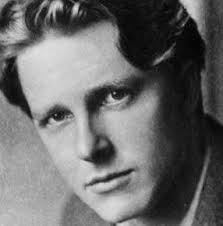Hamlet by William Shakespeare
Hamlet by William Shakespeare
The first clear reference to what we know as William
Shakespeare's Hamlet appears in the Stationers' Register,
26 July 1602, as a play called The Revenge of Hamlet Prince [of]
Denmark. In that article, the author says the
play was "lately acted by the Lord Chamberlain his servants" . In his
list of London plays published in 1598, Francis Meres makes no mention of any
play called Hamlet, but a note in Gabriel Harvey's
edition of Speght's Chaucer (published in 1598) does mention the
play Hamlet. Since scholars question the date of
the actual writing of that note, most of them agree that Shakespeare published Hamlet after 1601 and before 1603. The First
Folio, in 1623, categorized Shakespeare's plays as Comedies,
Histories, and Tragedies. Shakespeare wrote the great tragedies — excluding Romeo and
Juliet, which is not, strictly speaking, a true tragedy — between
1601 and 1606, and apparently Hamlet was written first. Shakespeare
closely followed Hamlet with Othello (1604), King Lear (1605/6), and Macbeth (1606), but a number of experts in
Bardology (the study of Shakespeare, who is known as The Bard of Avon) believe
that Hamlet represents the best of Shakespeare's
work. It is the perfect play.
Hamlet is an enigma. No
matter how many ways critics examine him, no absolute truth emerges. Hamlet
breathes with the multiple dimensions of a living human being, and everyone
understands him in a personal way. Hamlet's challenge to Guildenstern rings true
for everyone who seeks to know him: "You would pluck out the heart of my
mystery." None of us ever really does.
The
conundrum that is Hamlet stems from the fact that every time we look at him, he
is different. In understanding literary characters, just as in understanding
real people, our perceptions depend on what we bring to the investigation.
Hamlet is so complete a character that, like an old friend or relative, our
relationship to him changes each time we visit him, and he never ceases to
surprise us. Therein lies the secret to the enduring love affair audiences have
with him. They never tire of the intrigue.
Characters
·
The Ghost
·
Rosencrantz and Guildenstern




Comments
Post a Comment